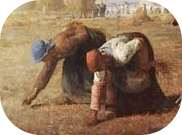
Luther and his companions, with all their bold readiness for danger and death in the cause of truth, had times when their feelings were akin to those of a divine singer, who said, “Why art thou cast down, O my soul?” But in such hours the unflinching Reformer would cheerily say to his friend Melancthon, “Come, Philip, let us sing the forty-sixth psalm;” and they would sing it in Luther's own characteristic version: –
“A sure stronghold our God is He,
A timely shield and weapon;
Our help he'll be and set us free
From every ill can happen.
And were the world with devils filled,
All eager to devour us,
Our souls to fear shall little yield,
They cannot overpower us.”
W. S. Christopher
Verse 1. “God is our refuge and strength, a very present help in trouble.” Not our armies or our fortresses. Israel's boast is in Jehovah, the only living and true God. The Lord stands his people in better stead than all the valour of legions or the boasted strength of chariot and horse. Soldiers of the cross, remember this, and count yourselves safe, and make yourselves strong in God. Neither forget the fact that God is our refuge just now, in the immediate present, as truly as when David penned these words. God alone is our all in all. All other refuges are refuges of lies; all other strength is weakness, for power belongeth unto God, and as God is all-sufficient, our defence and might are equal to all emergencies.
C. H. Spurgeon
Verse 2. “Therefore…” And as one has rightly said, “Whenever you see a 'Therefore' always look and see what it's there for.” And as David has established the truth in his heart and mind that God is his refuge and his strength and a very present help in trouble, therefore, regardless of what is going to take place in this earth – the waters make a roaring sound, the earth be removed, the mountains be cast into the midst of the sea – he will not fear. How many of the “therefores” of the Bible come galloping in on the back of great promises.
Verse 2. “Therefore we will not fear, though the earth be removed.” During an earthquake that occurred several years ago, the inhabitants of a small village were generally very much alarmed, and at the same time surprised at the calmness and apparent joy of an old lady whom they all knew. At length, on of them addressing the old lady, said, “Mother, are you not afraid?” “No,” she replied, “I rejoice to know that I have a God who can shake the world.”
James Lea
Verses 3 and 4. “Though the waters … there is a river…” David contrasts the waters that will roar and thunder and the “streams” that do glad the city of our God. When this world will be thrown into final and utter confusion and turmoil the peace of God and the God of peace will still keep the church of Christ in the midst of it all. “Though the waters of the earth roar and be troubled … there is a river, the streams whereof do glad the city of our God.”
Verse 7. “The Lord of hosts is with us…” In seven short words the psalmist David unfolds the church's only hope in evangelism and all that she does. Either the Lord “is with us,” or He is not. This is the one and only thing that determines success or failure in all that we attempt to do. We may march forth into the fray with all the weapons of modern gospel warfare and the strategies of men and angels, but if the Lord of hosts doesn't ride at the head of the column our ranks will soon be dispersed and our efforts distained. “One thing thou lackest,” it may be said of the church of Christ today; but that is the all-important thing – the ability to say with a clear conscience, “The Lord of hosts is with us.”
Verse 10. “Be still, and know that I am God…” It is often easier to do than to endure the will of God for our lives. A little grace, with favourable providences, may make a Christian hero. But abounding grace alone will suffice to make a Christian martyr.
Anonymous
Verse 10. “Be still, and know that I am God…” When Polycarp the martyr was exhorted to blaspheme the name of Christ in order to save himself from the stake his reply rang through the Roman arena in which he stood: “Fourscore years have I served Him, and how can I blaspheme my Lord and Saviour.” When he was led to be tied to the stake, he refused the ropes, saying, “Leave me alone; for He that gave me strength to come to the fire, will give me patience to undergo the fire without your tying.” “Be still, and know that I am God…”
|
This Page Title – Gleanings in the Psalms – Psalm 46 The Wicket Gate Magazine "A Continuing Witness". Internet Edition number 87 – placed on line November 2010 Magazine web address – www.wicketgate.co.uk |